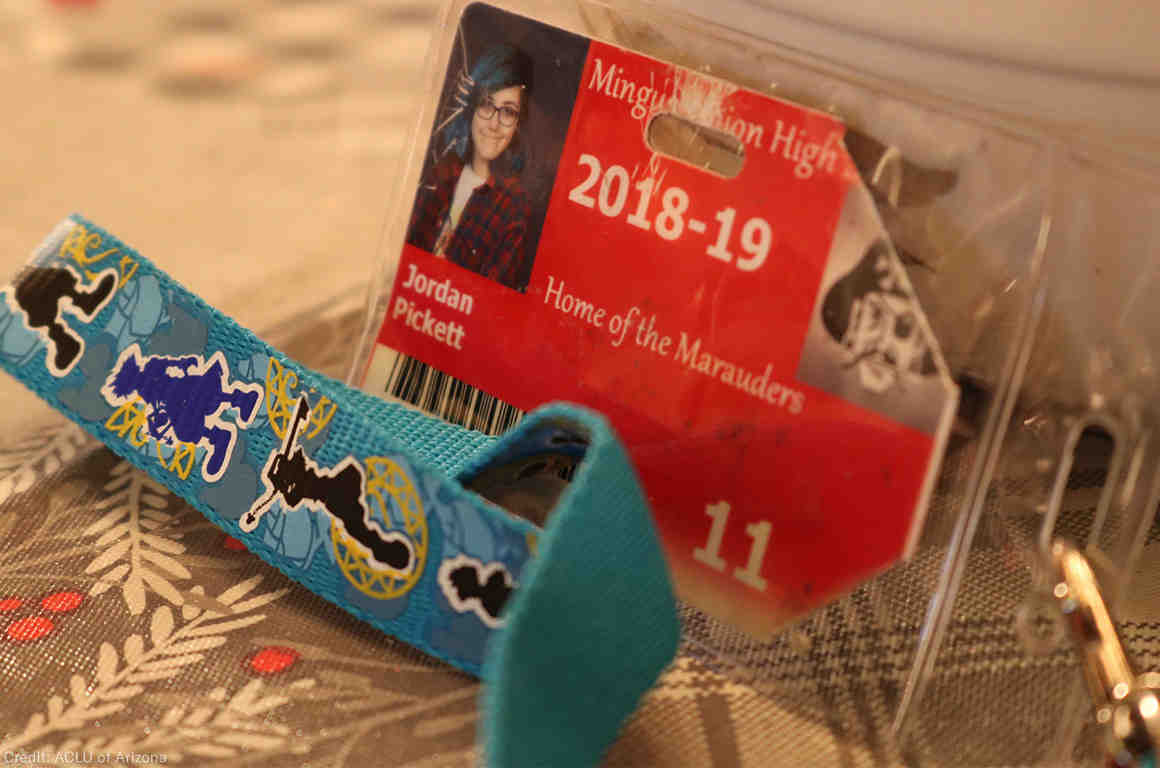When
my daughter Jordan began her junior year at Mingus High School in
Cottonwood, Arizona, she immediately felt stigmatized. On her first day
of school, the school’s administration forced Jordan to wear a bright
red identification badge. Everyone on campus knows what this “scarlet
badge” means. Upperclassmen at Mingus wear grey colored badges, but any
junior or senior student with missing credits are given a red badge, and
it doesn’t signify courage.
Publicly shaming my child and countless of other students for falling behind academically is wrong. I know how hard my daughter is working to get her grades up, and I know how discouraged she feels when she walks into school every morning with the “scarlet badge.” Yet she knows that every time a teacher or fellow student sees her red badge they think less of her.
In September, Jordan, her friend Jonah, and one other student took initiative and went directly to Mingus High’s school board. They shared how the “scarlet badge” was leading to an increase in bullying, harassment, and discrimination. The board listened to their comments and only revoked the badge for one student who has a learning disability. They did not change the policy.
I decided to contact the ACLU of Arizona’s Demand to Learn campaign. Aimed at eliminating practices that lead to student withdrawal, I wrote to them about my concerns with the “scarlet badge.” I worried that the academic pressure that the “scarlet badge” inflicts in students can lead to further disengagement from class. What’s more, Mingus is one of the few high schools in the area we live in. Transferring schools is not an option for students who are bullied for struggling academically.
The ACLU of Arizona sent a letter to Mingus, notifying them that their badge scheme is unlawful. A student’s academic information is private, but the “scarlet badge” forces certain upperclassmen to display their sensitive academic information to everyone on campus. This is a violation of the Family Education Rights and Privacy Act. Under FERPA, public schools may only disclose student education records to authorized school officials, such as teachers. Fellow students are not authorized officials.
Publicly shaming my child and countless of other students for falling behind academically is wrong. I know how hard my daughter is working to get her grades up, and I know how discouraged she feels when she walks into school every morning with the “scarlet badge.” Yet she knows that every time a teacher or fellow student sees her red badge they think less of her.
In September, Jordan, her friend Jonah, and one other student took initiative and went directly to Mingus High’s school board. They shared how the “scarlet badge” was leading to an increase in bullying, harassment, and discrimination. The board listened to their comments and only revoked the badge for one student who has a learning disability. They did not change the policy.
I decided to contact the ACLU of Arizona’s Demand to Learn campaign. Aimed at eliminating practices that lead to student withdrawal, I wrote to them about my concerns with the “scarlet badge.” I worried that the academic pressure that the “scarlet badge” inflicts in students can lead to further disengagement from class. What’s more, Mingus is one of the few high schools in the area we live in. Transferring schools is not an option for students who are bullied for struggling academically.
The ACLU of Arizona sent a letter to Mingus, notifying them that their badge scheme is unlawful. A student’s academic information is private, but the “scarlet badge” forces certain upperclassmen to display their sensitive academic information to everyone on campus. This is a violation of the Family Education Rights and Privacy Act. Under FERPA, public schools may only disclose student education records to authorized school officials, such as teachers. Fellow students are not authorized officials.

